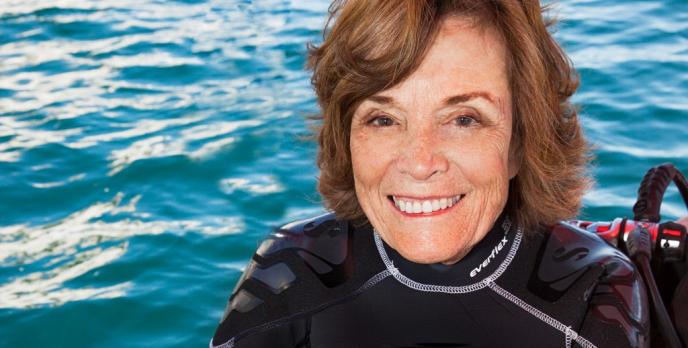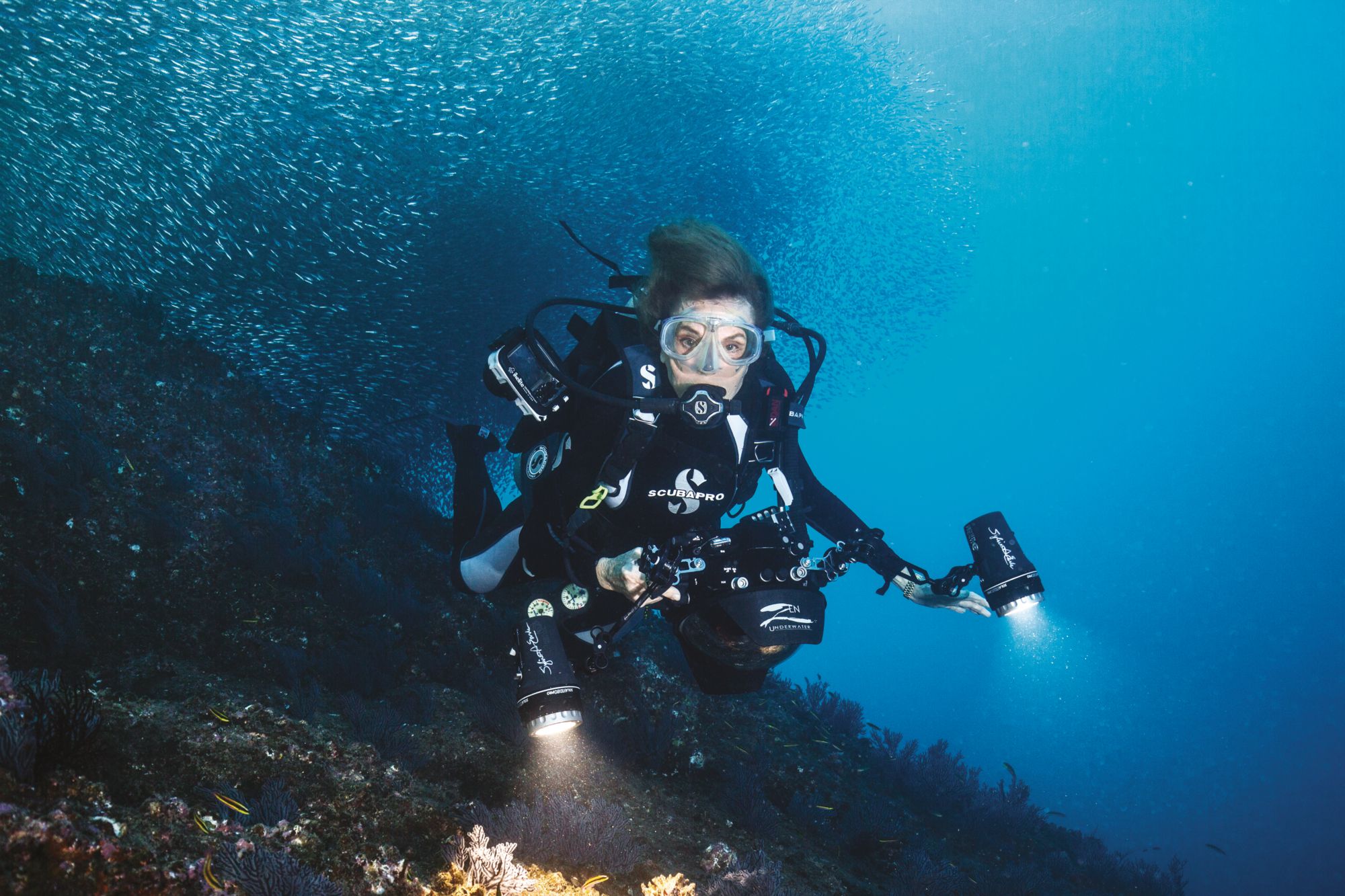Dr. Sylvia Earle

Meet the Climate Communicator in residence at USC Annenberg, Dr. Sylvia Earle!
Dr. Earle is a renowned oceanographer, marine biologist, explorer, and author. In a recent event at USC Annenberg, she shared her compelling insights and urged us all to engage in advocacy for the preservation of our oceans, as she wisely stated, “Without the ocean, there is no us.”
Sylvia Earle, who is affectionately referred to as “Her Deepness,” is a name that is well known in the world of marine biology and ocean exploration. Born on August 30, 1935, in Gibbstown New Jersey, Sylvia’s journey from being a first-generation college student to a world renowned marine biologist is an inspiring story of dedication, grit, and passion.
From a very young age, Sylvia was captivated by the mysteries of wildlife. Her curiosity led her to Florida State University, where she pursued a degree in Botany. Her academic pursuits took her further as she earned her master’s degree and PhD in Phycology, the study of algae, at Duke University.
Her contributions to oceanography go far beyond the academic. She holds the record for the longest walk on the seafloor, a testament to her dedication and fearlessness in exploring the ocean's depths. Her work has also been recognized by Time Magazine, which named her one of their “Heroes for the Planet.” Dr. Earle was also the first woman to lead the National Oceanographic and Atmospheric Administration, a role that further elevated her work and presence in oceanography.
One of her most iconic achievements was leading the first team of women aquanauts during the Tekite Project in 1970. This visionary endeavor helped pave the wa y for more women to make their mark in the field of marine biology, and continues to inspire many today.
y for more women to make their mark in the field of marine biology, and continues to inspire many today.
Her unwavering commitment to the oceans led her to co-found Deep Ocean Engineering in 1982, alongside her husband Graham Hawkes, who is an accomplished engineer and subversive designer. This initiative helped revolutionize underwater exploration, as it resulted in the creation of the Deep Rover research submarine in 1985, which is capable of diving 1,000 meters underwater.
In 2009, she established Mission Blue, which is a global alliance with the mission to create marine protected areas known as “Hope Spots.” These hope spots play a huge role in the preservation of marine biodiversity and balance. To date, Mission Blue has designated over 150 hope spots across the globe.
Sylvia Earle’s tireless efforts have transferred our understanding of marine ecosystems and their vulnerability to humans and their actions. Her dedication to ocean conservation and exploration has not only cemented her legacy as a renowned scientist, but also inspired countless individuals to become passionate about preserving our oceans.

